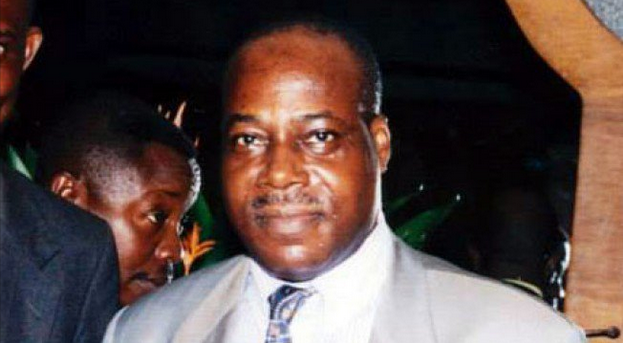
Without billboards or banners, or anything of such things, a seven letter byline – Ray Ekpu – has for the past 45 years in a life of 70 years, so far, remains a brand in Nigerian journalism.
As indications show today, till tomorrow almost all news media platforms in Nigeria would want to have him as theirs.
Whereas, headlines and pictures possess forces that move attention of the public, the brand has a distinct charm of appealing to anyone with reading capacity even when the headline may not contain a slight of sensationalism nor offer clear clue of subject matter.
From his days in the Nigerian Chronicle to Daily Times, to National Concord, to Newswatch, Ekpu surely occupies chapters in the History of Nigerian Press.
If by omission or commission his name is not mentioned in contemporary History of the Nigerian Press, the knowledge of such author(s) risks being call to questions.
Though they were already a must-read, given trailblazing status of Newswatch as Africa’s first weekly newsmagazine, its debut in 1985 marked most defining moment for Ekpu and other founders of the news magazine – Dele Giwa, Dan Agbese and Yakubu Mohammed – in their journalism journey.
At the same time, the Newswatch venture remains till today the most trying period of their career.
Giwa, the first editor-in-chief of the newsmagazine was killed at the infant life of the news medium, through a parcel bomb.
Though the assassination remains innovative more than three decades after it occurred, the innovators are yet to get a Nobel prize because they are ashamed identifying with such ignoble innovation.
To worsen matters, the relevant authorities have not been able to identify the innovators even as clues seem abounding.
Shortly after Giwa’s death, Newswatch was proscribed for six months by Ibrahim Babangida military government; Ekpu and other colleagues of his have been arrested and detained time and again on account authoritative and investigative editorial contents of Newswatch; currently Ekpu and surviving executive directors of the company, on one side, are in legal tussles, over ownership of the media firm with Jimoh Ibrahim, one of the company’s latest investors.
For Ekpu, it has been an admixture of triumphs and trials.
He has been detained by Nigerian security authorities for six times.
He has won International Editor Prize, among other local and international awards.
Though he is certainly not the commander-in-chief of the Nigerian press, he commands the respect of his colleagues in the media industry because along with his amiable character and spirit of altruism, he has a good command of professional excellence.
With unique deployment of literary techniques and photographical presentation of prose, Ekpu, Agbese and few in their ilk have been demonstrating that journalistic stories cannot only be watched on screen but on print as well.
No wonder, Newswatch! In Nigeria, Newswatch remains a strong case point that news in hard copies is not worth recycling into toiletries or materials for packaging of suya, groundnut, akara and so on.
Notwithstanding the advent and influence of online media, Ekpu’s works make convincing argument for sustenance of print media and advertise newspapers as life-long literatures.
Whether journalism is seen as “history written in a hurry” or “the first rough draft of history” as credited to Philip L. Graham, former Washington Post President and Publisher or “a literature in a hurry,” as Matthew Arnold is quoted to have said, the likes of Ekpu, through their bylines have taught and exemplified that the excuse of rushing holds no water for higgledy-piggledy packaging of any journalistic piece.
Ekpu’s works amplify writing as product of ratiocination.
Ekpu speaks the way he writes and his works are often spiced with native wisdom, sprinkled with street intelligence, garnished with ingenuity of a genius, flavoured with fantastic prose-styling of a master wordsmith, vitalize with time-tested validity of a sage, and laced with audacity of a valour and authority of an expert.
Even when he is dwelling on hard matters, one hardly resists laughing even when the issues are not laughing matters.
His works show that journalistic pieces should traditionally filter out information, education and entertainment.
And Ekpu has topped it with environmental surveillance and philosophical lines!
In one of his recent columns in The Guardian, typical of his style, he took satirical swipes at Nigerian legislators for padding our national budgets, and art couturiers for padding faces, breasts, buttocks of women.
But Ekpu would find it pretty difficulty to safely plead not guilty if charges of padding prose are preferred against him, for he has been innovatively contouring well known words, phrases and clichés, giving them prettiness and freshness of beautiful damsels, thereby making them alluring to those who have lascivious appetite to words in inks.
Do we have another Ray Ekpu among Nigerian journalists in the succeeding generations?
That rhetorical observation was brought to public domain by Funke Egbemode, the Editor-in-Chief of New Telegraph and president Nigerian Guild of Editors recently at event marking 4th anniversary of The Niche newspaper.
The poser is very pertinent and beyond the Nigerian media industry in that values and virtues of excellence in all areas of Nigerian life deteriorate with the passage of days.
This writer believes that the younger generations are not without other Ekpus in their own style.
Truly, a number of journalists have been inspired into the trade on account of Ekpu’s works.
Many journalists see him as a model. Many have studied him and try to emulate his style.
In fact, Mass Communication Department of Akwa Ibom State Polytechnic has been named after Ekpu.
From the foregoing, provided avenues are optimally explored, the younger generations of Nigerian journalists have more fountains of knowledge than Ekpu and his contemporaries had in their teething time.
With Chimamanda Ngozi Adichie, from a generation described respectively by two different prominent persons as “wasted” and “lazy,” succeeding the legendary Chinua Achebe, one can be optimistic that there are upcoming Ekpus, however few, after all, rarity characterises rare gems.
END

Be the first to comment